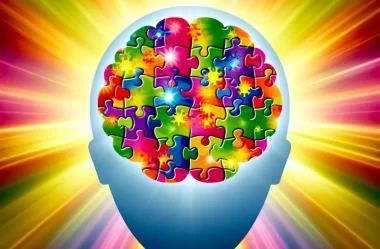An emotional intelligence summary is provided here, offering an insightful exploration into the essential skills that foster personal and professional development. Through this comprehensive overview, the power of EQ (Emotional Quotient) is unlocked, demonstrating how it can significantly influence success in various aspects of life. Highlighted are the critical components and transformative effects of emotional intelligence, showcasing its pivotal role in enhancing interpersonal relationships and achieving career goals.
The Genesis of Emotional Intelligence
Daniel Goleman’s “Emotional Intelligence,” published in 1995, introduced the notion that EQ is as crucial, if not more so, than IQ in determining success in life and in the workplace. Goleman’s narrative begins with a powerful assertion: the true measure of intelligence is not merely cognitive capacity but the ability to manage our emotions and understand those of others.
The Five Pillars of Emotional Intelligence
Goleman identifies five key elements that constitute emotional intelligence:
- Self-awareness – Recognizing one’s emotions and their impact.
- Self-regulation – Managing or redirecting one’s disruptive emotions and impulses.
- Motivation – Harnessing emotions to pursue goals.
- Empathy – Understanding the emotional makeup of other people.
- Social skills – Managing relationships to move people in desired directions.
These components serve as the foundation for personal and professional development, influencing everything from leadership efficacy to interpersonal relationships.
The Impact of Emotional Intelligence on Success
Goleman’s research sheds light on the profound impact of EQ in various aspects of life. A notable study highlighted in the book, conducted by the Consortium for Research on Emotional Intelligence in Organizations, found that individuals with high EQ scores outperform those with high IQ but low EQ scores in nearly 90% of assessed competencies. These findings suggest that emotional intelligence plays a significant role in achieving success, surpassing traditional measures of intelligence.
Your Audible Trial includes a free audiobook Emotional Intelligence by Daniel Goleman
Emotional Intelligence in the Workplace
In the professional realm, Goleman’s insights have revolutionized HR practices and leadership development. According to a study by CareerBuilder, 71% of employers value EQ over IQ, affirming the importance of emotional intelligence in the workplace. Leaders with high EQ are shown to foster better team dynamics, drive engagement, and improve overall performance.
Enhancing Personal Relationships
Beyond the workplace, emotional intelligence is pivotal in enhancing personal relationships. Goleman argues that EQ is essential for understanding and navigating the emotional complexities of interpersonal interactions, leading to more fulfilling and lasting relationships. Research by John Gottman at the University of Washington supports this, showing that couples who understand and manage their emotions effectively have more stable and satisfying relationships.
The Journey Towards Emotional Intelligence
Goleman does not leave the reader without guidance on developing emotional intelligence. He emphasizes the plasticity of the brain, suggesting that with intentional practice and learning, anyone can enhance their EQ. Strategies include mindfulness practices, emotional regulation techniques, and developing empathy through active listening and perspective-taking.
Conclusion: The Enduring Legacy of Emotional Intelligence
Daniel Goleman’s “Emotional Intelligence” remains a cornerstone in understanding the complex interplay between cognition and emotion. By highlighting the importance of emotional intelligence and providing a roadmap for its development, Goleman has paved the way for individuals to achieve greater success and fulfillment in all areas of life. As we continue to navigate the challenges of the 21st century, the principles outlined in “Emotional Intelligence” offer timeless wisdom for fostering resilience, empathy, and interpersonal harmony.
Your Audible Trial includes a free audiobook Emotional Intelligence by Daniel Goleman
FAQ: Understanding Emotional Intelligence
The five characteristics of emotional intelligence, as outlined by Daniel Goleman, are
- Self-awareness: The ability to recognize and understand your own emotions and how they affect your thoughts and behavior. This includes understanding your strengths and weaknesses and having self-confidence.
- Self-regulation: The ability to control or redirect disruptive emotions and impulses and adapt to changing circumstances. This involves thinking before acting and expressing oneself appropriately.
- Motivation: A passion to work for reasons beyond money or status. Motivation is having a strong desire to achieve, optimism even in the face of failure, and a commitment to personal or organizational goals.
- Empathy: The ability to understand the emotional makeup of other people. It involves recognizing and considering others’ feelings, especially when making decisions.
- Social skills: Proficiency in managing relationships and building networks. This includes the ability to find common ground, build rapport, and maintain relationships with a wide variety of people.
Emotional intelligence (EQ) refers to the capacity to be aware of, control, and express one’s emotions, and to handle interpersonal relationships judiciously and empathetically. It involves recognizing your own emotional states and those of others, using emotional information to guide thinking and behavior, discerning between different feelings and labeling them appropriately, and managing or adjusting emotions to adapt to environments or achieve one’s goals.
Beyond the core five characteristics identified by Daniel Goleman, emotional intelligence can also encompass the following traits or abilities:
- Emotional awareness: Recognizing one’s emotions and their effects.
- Accurate self-assessment: Knowing one’s strengths and limits.
- Self-confidence: A strong sense of one’s self-worth and capabilities.
- Self-control: Managing disruptive impulses and emotions.
- Trustworthiness: Maintaining standards of honesty and integrity.
- Conscientiousness: Taking responsibility for personal performance.
- Adaptability: Flexibility in handling change.
- Achievement orientation: Striving to improve or meet a standard of excellence.
- Initiative: Readiness to act on opportunities.
- Understanding others: Sensing others’ feelings and perspectives, and taking an active interest in their concerns.
- Developing others: The propensity to bolster the abilities of others through feedback and guidance.
- Influence: Wielding effective persuasion tactics.
These expanded traits offer a deeper dive into what constitutes emotional intelligence, highlighting the complexity and breadth of the concept.
Demonstrating emotional intelligence involves several practical behaviors and practices:
- Listening actively: Paying close attention to what others are saying, asking clarifying questions, and rephrasing what the speaker has said to ensure understanding.
- Being aware of your emotional reactions: Noticing what triggers your emotions and reflecting on why before responding.
- Expressing your emotions thoughtfully: Communicating your feelings effectively and appropriately for the context.
- Showing empathy: Understanding and sharing the feelings of another person from their perspective
- Managing stress: Applying strategies to cope with anxiety or stress in a healthy way, such as through meditation, exercise, or talking to someone about your problems.
- Resolving conflicts positively: Navigating disagreements with others in a way that promotes understanding and finds a solution that respects everyone’s needs.
- Practicing gratitude: Recognizing and appreciating what you have and the contributions of others.
- Seeking feedback: Being open to others’ perspectives about your behavior and using this information for personal growth.
By integrating these practices into daily interactions, individuals can demonstrate a high level of emotional intelligence, fostering better relationships and achieving greater personal and professional success.
Your Audible Trial includes a free audiobook Emotional Intelligence by Daniel Goleman
Resources For Personal Development Goals
Books:
- Breaking The Habit of Being Yourself( Dr Joe Dispenza)
- The Power of Now- Eckhart Tolle
- The 48 Laws Of Power: Robert Greene
- Atomic Habits: James Clear
Audible:
- Audible the 48 Laws of Power– Robert Greene
Articles:
Self Help












